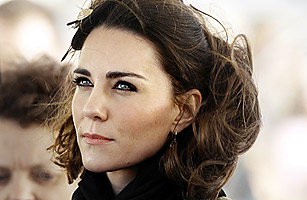
Kate Middleton seems like a nice girl from a solid middle-class background. She’s jolly sensible and keeps her mouth shut, and as far as we can tell, Prince William has found a keeper. That seems to be the consensus, perhaps comforting, certainly less than sensational. So have the media just confected interest in Kate, hoping to sell newspapers and magazines? Or does the endless coverage — speculating on everything from the designer of her dress to what her parents will pay for the wedding — reveal a deeper story?
Regardless of how much information we have been force-fed about the Prince and his wholesome, girl-next-door bride, many have been bored. Kate had a poster of Prince William on her wall when she was at school? We yawn and return to worrying about the Middle East or reading the latest literary sensation.
Or so we pretend. But more of us than we like to admit are quite riveted. It’s odd. Aside from fulfilling a fairy tale — ordinary girl marrying a prince — in which we no longer believe, Kate, 29, has led a pretty unexceptional life. She was born in 1982 in Berkshire, in southeast England, to parents who had met while working for British Airways and now run their own business. Educated at Marlborough College, one of Britain’s leading private schools, she traveled for a year before attending St. Andrews university in Scotland, where she graduated with a degree in the history of art. She likes sports, sailing and hill walking. All in all, it’s a pretty conventional story — the key elements are private school, gap year, St. Andrews, history of art, love of the outdoors — of a daughter from the upwardly middle class of what the British would call the home counties.
The absence of fascinating detail in Kate’s life makes me think that to explain our interest in her, we have to look back to the Diana years. Before the Princess of Wales exploded onto the scene, the royal family was largely perceived to be incredibly dull, especially by the intelligentsia. True, in working-class communities, like the one in which I grew up in the north of England, there was greater enthusiasm for the royals. For the Queen’s Silver Jubilee in 1977, I remember the bunting hanging in treble layers for the street party and the adults standing solemnly, if a little drunkenly, to attention when the national anthem played. My father, like many immigrants , was respectful of the monarchy. So I grew up — unlike many of my friends from white middle-class liberal homes — without having a republican agenda inculcated in me. But neither did royalty interest me. It was remarkable.
Diana changed all that. You never knew what was going to happen next. Although her life became a soap opera, she raised serious issues, campaigning for AIDS awareness and against land mines. At times she chose to reveal so much about her personal life — her bulimia, for example — that useful national debate opened up about formerly taboo subjects.